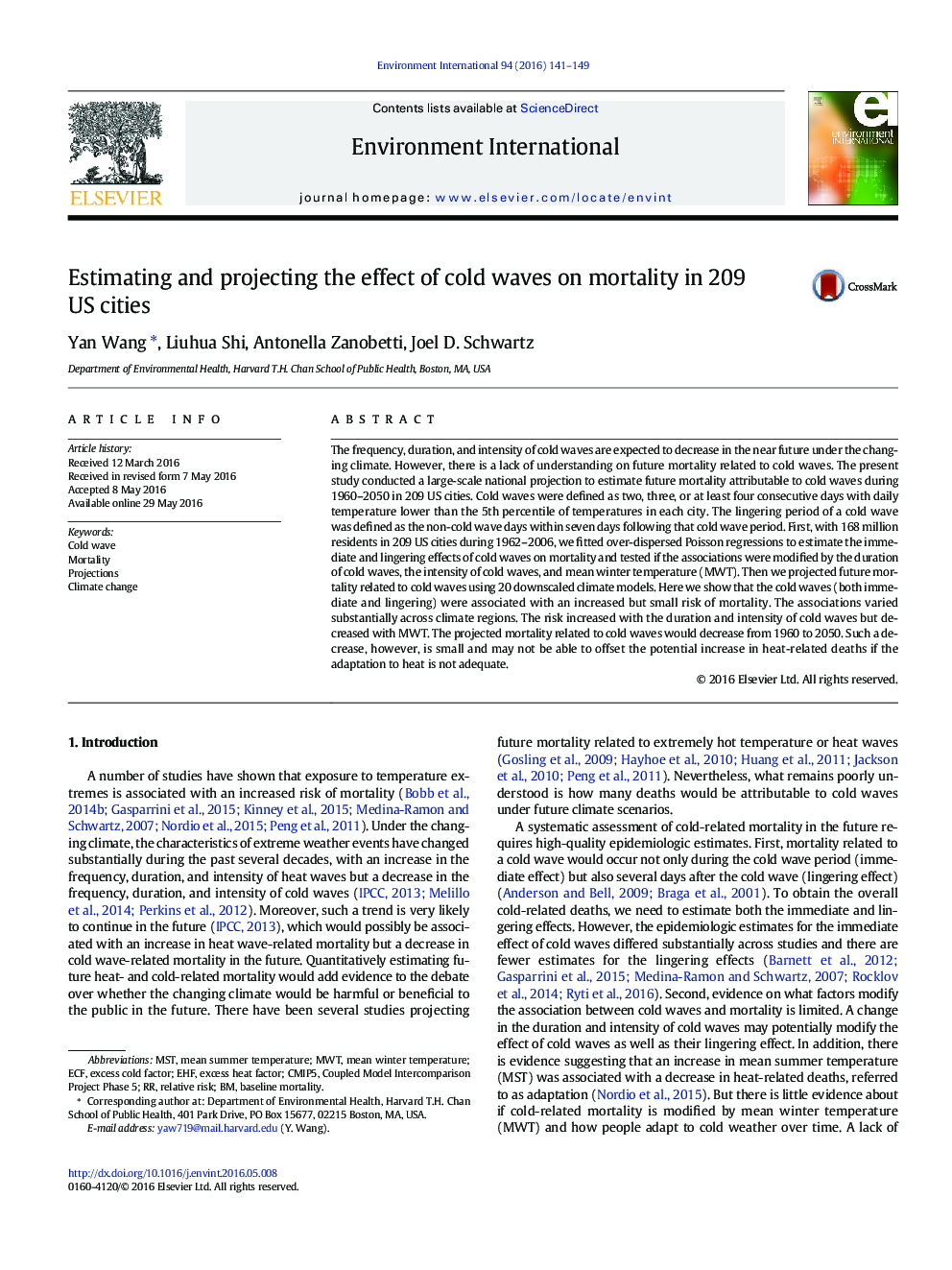| کد مقاله | کد نشریه | سال انتشار | مقاله انگلیسی | نسخه تمام متن |
|---|---|---|---|---|
| 6312749 | 1619036 | 2016 | 9 صفحه PDF | دانلود رایگان |
- We provided large-scale projections on future cold-related mortality in the US.
- Cold waves were related to an increased but small risk of mortality.
- Future mortality related to cold waves is expected to decrease but not greatly.
- Substantial spatial heterogeneity in cold-related mortality was found.
The frequency, duration, and intensity of cold waves are expected to decrease in the near future under the changing climate. However, there is a lack of understanding on future mortality related to cold waves. The present study conducted a large-scale national projection to estimate future mortality attributable to cold waves during 1960-2050 in 209 US cities. Cold waves were defined as two, three, or at least four consecutive days with daily temperature lower than the 5th percentile of temperatures in each city. The lingering period of a cold wave was defined as the non-cold wave days within seven days following that cold wave period. First, with 168Â million residents in 209 US cities during 1962-2006, we fitted over-dispersed Poisson regressions to estimate the immediate and lingering effects of cold waves on mortality and tested if the associations were modified by the duration of cold waves, the intensity of cold waves, and mean winter temperature (MWT). Then we projected future mortality related to cold waves using 20 downscaled climate models. Here we show that the cold waves (both immediate and lingering) were associated with an increased but small risk of mortality. The associations varied substantially across climate regions. The risk increased with the duration and intensity of cold waves but decreased with MWT. The projected mortality related to cold waves would decrease from 1960 to 2050. Such a decrease, however, is small and may not be able to offset the potential increase in heat-related deaths if the adaptation to heat is not adequate.
Journal: Environment International - Volume 94, September 2016, Pages 141-149
